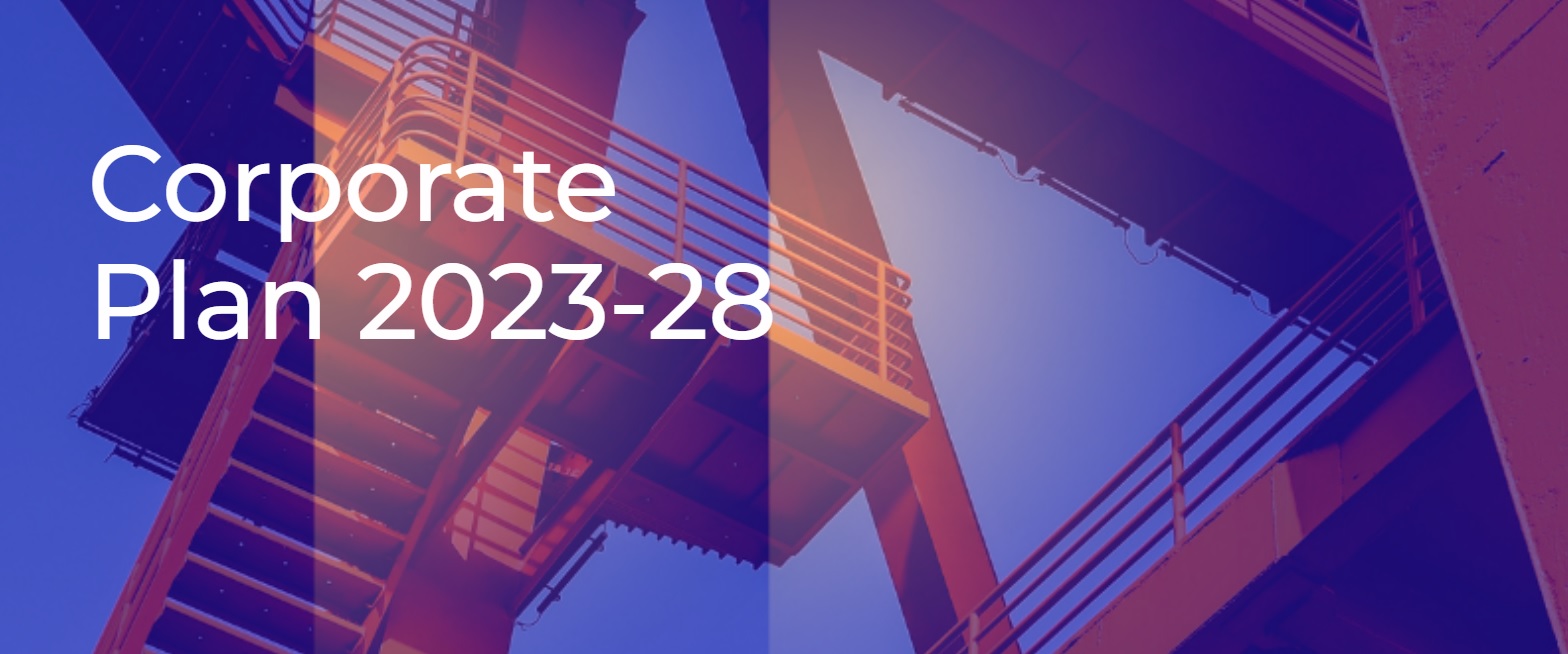CIOB five-year plan
Contents |
[edit] Introduction
On 27 January 2023, the Chartered Institute of Building (CIOB) launched its new five-year plan, which focuses on quality and safety, environmental sustainability and closing the construction industry’s skills gap.
The plan is the organisation’s roadmap to 2028 and aims to make modern professionalism in construction management widely aspired to and increasingly a reality across the industry. Trustees and CIOB members from across the globe were involved in shaping the plan, which centres on the key issues facing the users and creators of the built environment.
Caroline Gumble, CEO at CIOB, said: “To me this is much more than a simple document. It is the roadmap for the journey CIOB will take over the next five years and beyond, in leading the way to make positive change for the creators of our built environment. It is my ambition that this plan drives delivery on what we all want from this important industry: high standards of quality and safety, improvements in sustainability, and closing the skills gap. As the home for built environment professionals, CIOB must support our members in making that possible. It was incredibly important to me that members had input as, in many ways, it is our members who will bring this document to life.”
[edit] The CIOB plan key themes
[edit] Environmental sustainability
The construction industry needs to operate in a way that ensures environmental impact is minimal and contributes to a sustainable future. Designing, creating, maintaining and recycling to deliver a built environment that society can live with, use and enjoy.
CIOB will:
- Equip CIOB members (individual and company) with the knowledge and skills to manage and deliver the construction process in environmentally sustainable ways.
- Embed environmental sustainability into relevant learning programmes across schools, colleges and universities.
- Support industry and stakeholders in building the case for change through environmentally sustainable activities and metrics.
[edit] Quality and safety
Good quality buildings and infrastructure promote health, safety and wellbeing, as well as delivering social, cultural, environmental and economic benefits. The safety of the built environment should be so fundamental that it can be taken for granted, but recent years have shown that this isn’t always the case.
CIOB will:
- Bring about a culture change in the industry that ensures quality and building safety are at the heart of everything we do and never sacrificed for profit.
- Become the leading provider of education, training and standards in quality and building safety in the built environment, globally.
[edit] Skills gap
The industry must increase productivity to match other mainstream sectors, ensuring the built environment is fit for changing societal needs and a growing population. Most worldwide construction markets are reporting a skilled labour shortage. The lack of a representative workforce in the sector significantly reduces the available talent pool.
CIOB will:
- Contribute tangibly to reducing the industry skills shortage across priority skills by 2028.
- Help the industry bring in people, from a diverse range of backgrounds, who would not have joined without CIOB’s actions.
- Improve the perception and reality of working in the construction industry, by championing diversity, inclusion and worker welfare.
- Facilitate smooth, motivating routes within the industry to continually develop the skills of modern professional construction management.
The full CIOB plan can be found here.
--CIOB
[edit] Related articles on Designing Buildings
Featured articles and news
Infrastructure that connect the physical and digital domains.
Harnessing robotics and AI in challenging environments
The key to nuclear decommissioning and fusion engineering.
BSRIA announces Lisa Ashworth as new CEO
Tasked with furthering BSRIA’s impressive growth ambitions.
Public buildings get half a million energy efficiency boost
£557 million to switch to cleaner heating and save on energy.
CIOB launches pre-election manifesto
Outlining potential future policies for the next government.
Grenfell Tower Inquiry announcement
Phase 2 hearings come to a close and the final report due in September.
Progress from Parts L, F and O: A whitepaper, one year on.
A replicated study to understand the opinion of practitioners.
ECA announces new president 2024
Electrical engineer and business leader Stuart Smith.
A distinct type of countryside that should be celebrated.
Should Part O be extended to existing buildings?
EAC brands heatwave adaptation a missed opportunity.
Definition of Statutory in workplace and facilities management
Established by IWFM, BESA, CIBSE and BSRIA.
Tackling the transition from traditional heating systems
59% lack the necessary information and confidence to switch.
The general election and the construction industry
As PM, Rishi Sunak announces July 4 date for an election.
Eco apprenticeships continue help grow green workforce
A year after being recognised at the King's coronation.
Permitted development rights for agricultural buildings
The changes coming into effect as of May 21, 2024.























